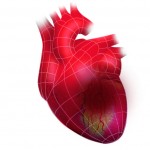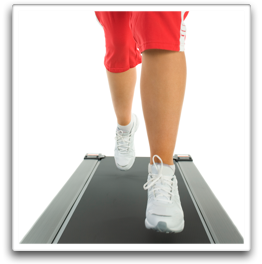A Closer Look at Angina (Chest Pain)
 The technical name, Angina Pectoris, is Latin for “squeezing of the chest,” which is more commonly referred to as chest pain or discomfort and can last from 1 to 15 minutes. Tightness that occurs when an area of the heart muscle is receiving decreased blood oxygen supply is usually due to the narrowing of coronary arteries. The coronary arteries supply the heart with oxygen rich blood. When cholesterol builds up on the artery walls, a hard plaque forms and the arteries narrow, which lead to a decrease in the flow of oxygen-rich blood to the heart, leading to heartache, the development of chronic coronary artery disease, heart attack, and even death.
The technical name, Angina Pectoris, is Latin for “squeezing of the chest,” which is more commonly referred to as chest pain or discomfort and can last from 1 to 15 minutes. Tightness that occurs when an area of the heart muscle is receiving decreased blood oxygen supply is usually due to the narrowing of coronary arteries. The coronary arteries supply the heart with oxygen rich blood. When cholesterol builds up on the artery walls, a hard plaque forms and the arteries narrow, which lead to a decrease in the flow of oxygen-rich blood to the heart, leading to heartache, the development of chronic coronary artery disease, heart attack, and even death.
Causes for Angina
Since angina is a result of reduced oxygen supply to the heart, physical exertion can be a common trigger, as the heart demands more oxygen than it receives in order to work harder. In addition, a few other risk factors include:
- Unhealthy cholesterol
 levels
levels - Hypertension (high blood pressure)
- Tobacco smoking
- Diabetes
- Being overweight or obese
- Severe emotional stress
- Sedentary lifestyle
- Being over 45 for men and over 55 for women
- Family history of early heart disease
- Exposure to extreme temperatures
What are the symptoms of Angina
Angina is usually described as a pressure, heaviness, tightening, squeezing, burning, or aching across the chest, usually starting behind the breastbone. This pain often spreads to the neck, jaw, arms, shoulders, throat, back, or even the teeth. Patients may also complain of symptoms such as indigestion, heartburn, weakness, sweating, nausea, cramping, and shortness of breath.
Stable angina usually is unsurprising, lasts a short period of time, and may feel like gas or indigestion. Unstable angina occurs at rest, is surprising, last longer, and may worsen over time. Variant angina occurs at rest and is usually severe.
Preventing Angina
 Angina can be prevented by changing your lifestyle and recognizing symptoms early. By eating healthy foods low in fat and cholesterol, not smoking, staying physically active, and properly handling stress, Angina and related symptoms can be avoided. In addition, make sure to receive proper treatment for high cholesterol, high blood pressure, diabetes, and obesity.
Angina can be prevented by changing your lifestyle and recognizing symptoms early. By eating healthy foods low in fat and cholesterol, not smoking, staying physically active, and properly handling stress, Angina and related symptoms can be avoided. In addition, make sure to receive proper treatment for high cholesterol, high blood pressure, diabetes, and obesity.
